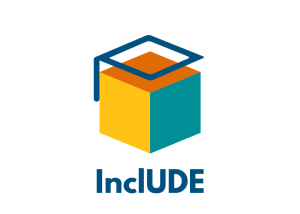About the repository

The Include Repository of Accessible Digital Tools is a platform of digital tools and resources that can be used to promote inclusive education in online and blended learning settings. This repository includes resources for the creation and presentation of accessible digital content. Alongside providing accessibility solutions for specific user needs and disabilities, it also aims to provide tools for use in high and low-resource environments.
Who is this for?
- People working in the field of education at any level, including VET and adult education
- Learners with or without disabilities, their families and support service providers
- National and local authorities
- European institutions
- Social care organisations
- Cultural organisations
- Medical care providers
- Small-scale businesses (SMEs, micro-enterprises, self-employed), who want to be more accessible for their customers but have limited technical support/awareness.
The objectives
This platform aims to provide a single catalogue of tools and resources, in one location, for teaching professionals and students to make their content more accessible or more easily access teaching materials.
With the tools on this platform users can:
- Produce content in more accessible formats.
- Better meet the special education needs of learners.
- Be empowered to access learning materials more independently
About the InclUDE Project

- To provide an easy way to search and access free and open tools for online accessibility.
- To create a practical, step-by-step resource that guides lecturers through setting up online teaching sessions that are accessible to a wide range of students.
- To create guidelines of considerations that can help lecturers to make their teaching scheduling and practice more inclusive.